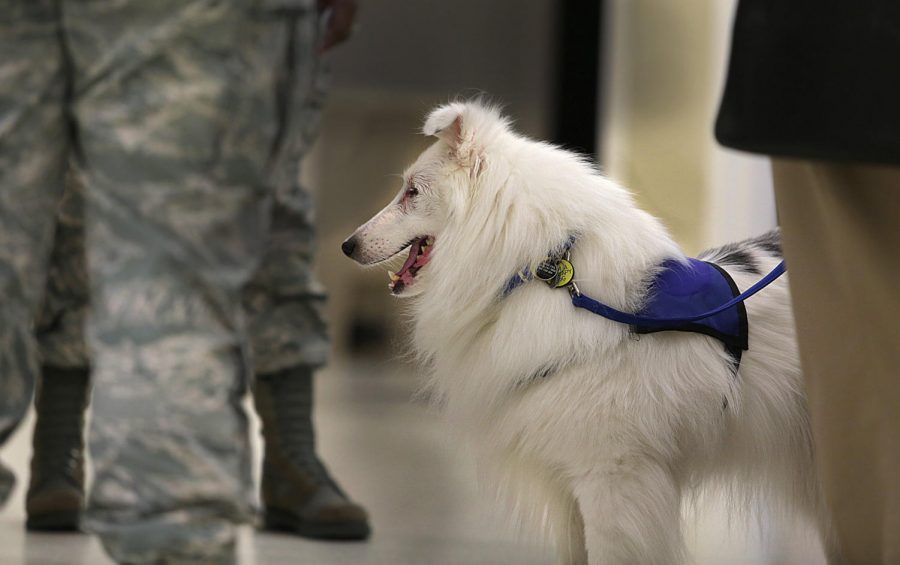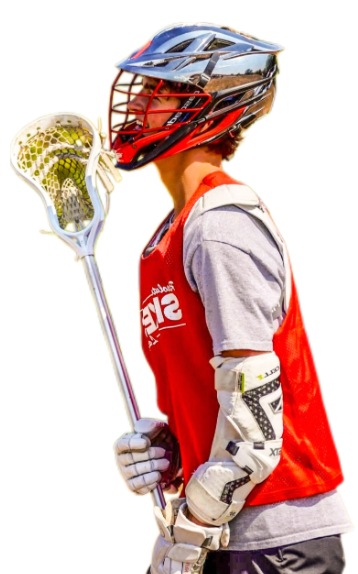Therapy animals lend helping paws
HELP. Retired Marine Matt Raible cuddles Jason, a service dog who aids him with the symptoms of both physical disabilities and PTSD. Therapy dogs can complete tasks for injured veterans and can also provide a sense of safety and companionship to those suffering with PTSD. This Veterans’ Day, on November 11, remember to thank a veteran and remember to fight for them the other 364 days of the year.
Vivid flashbacks. Crippling anxiety. Seizures. Emotional detachment. Aggression.
These are symptoms of post-traumatic stress disorder (PTSD), which almost 20 percent of our veterans must endure each day.
On November 11, America will celebrate Veterans’ Day. But on November 12, will America treat its veterans any differently?
Our veterans fight for us, and it is essential that we fight for them whether they are on or off duty.
Along with the millions suffering from PTSD, 3.8 million veterans reportedly have a service-related disability as of 2014, according to the United States Census Bureau.
How can we give this multitude of service members the proper care?
In recent years, the effects of service dogs aiding those with PTSD and/or physical disabilities have come to light.
“Therapy dogs are really important because they provide you with a companion that cares a lot, which is vital for someone that is lost and in pain, especially if that person doesn’t have anyone else,” said Keren Idelman, 12.
Those with PTSD often have paranoid thoughts and remain hyper alert at all times due to their experiences at war. Having a dog to check the perimeter and listen or smell out any danger can make veterans feel safer.
“It makes me feel like I’ve got a bond, knowing that he, like any other soldier that you have a bond with, would take a bullet for you. Would watch your back – and your front,” said army veteran Joe Aguirre, according to FOX News.
Therapy dogs can also provide emotional support by helping veterans establish trust and to help them meet new people or, on the contrary, act as a defense system to give their owners personal space in a public area.
According to the Smithsonian, “Researchers are accumulating evidence that bonding with dogs has biological effects, such as elevated levels of the hormone oxytocin.”
“Oxytocin improves trust, the ability to interpret facial expressions, the overcoming of paranoia and other pro-social effects – the opposite of PTSD symptoms,” said Meg Daley, who works for a program called Warrior Canine Connection.
Having a dog can help transition our veterans to living in society once again, compelling them to go outside, make new connections, and feel safe and loved.
Your donation will support the student journalists of Sycamore High School. Your contribution will allow us to purchase equipment and cover our annual website hosting costs.







